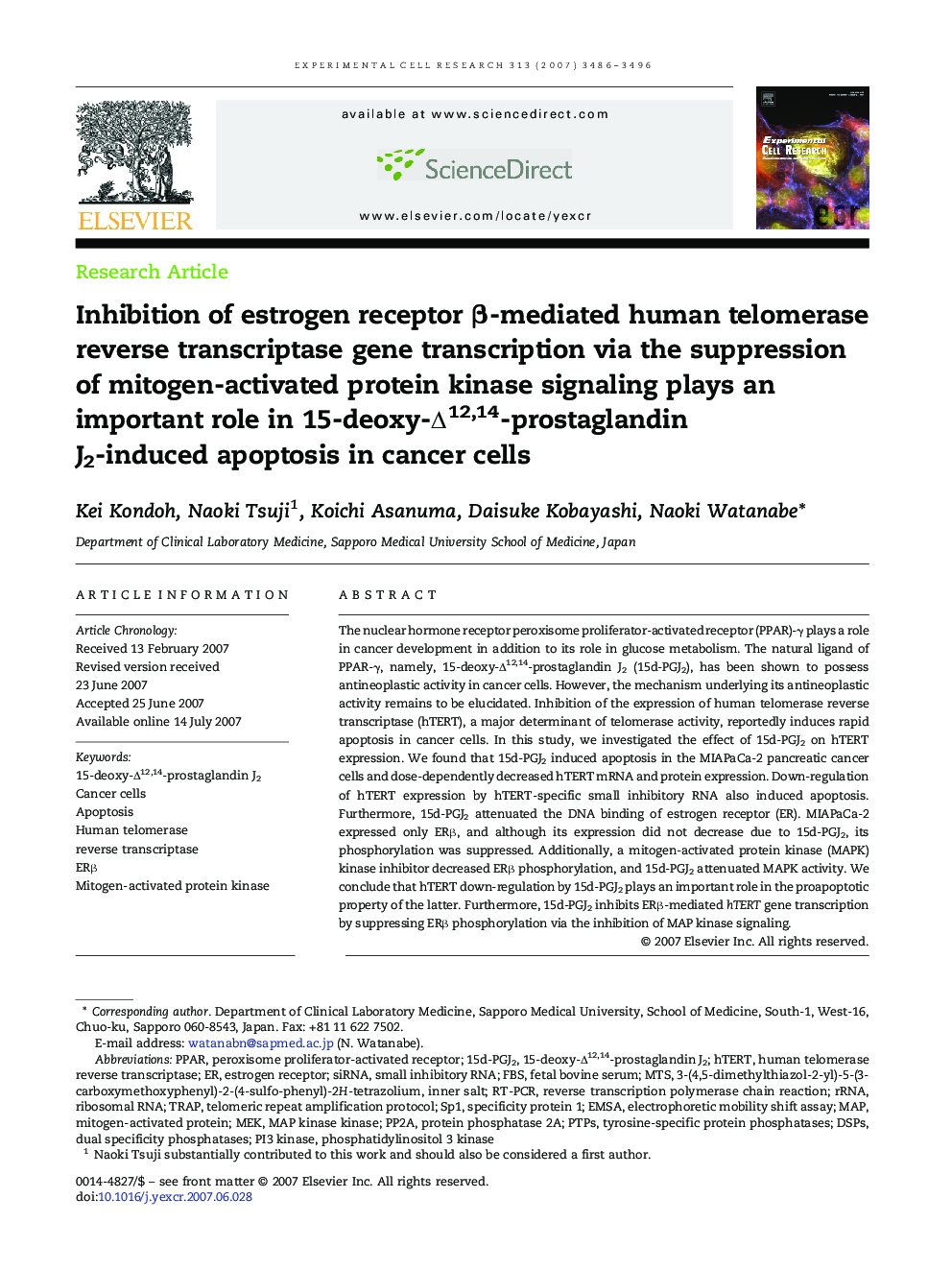| کد مقاله | کد نشریه | سال انتشار | مقاله انگلیسی | نسخه تمام متن |
|---|---|---|---|---|
| 2132542 | 1086699 | 2007 | 11 صفحه PDF | دانلود رایگان |

The nuclear hormone receptor peroxisome proliferator-activated receptor (PPAR)-γ plays a role in cancer development in addition to its role in glucose metabolism. The natural ligand of PPAR-γ, namely, 15-deoxy-Δ12,14-prostaglandin J2 (15d-PGJ2), has been shown to possess antineoplastic activity in cancer cells. However, the mechanism underlying its antineoplastic activity remains to be elucidated. Inhibition of the expression of human telomerase reverse transcriptase (hTERT), a major determinant of telomerase activity, reportedly induces rapid apoptosis in cancer cells. In this study, we investigated the effect of 15d-PGJ2 on hTERT expression. We found that 15d-PGJ2 induced apoptosis in the MIAPaCa-2 pancreatic cancer cells and dose-dependently decreased hTERT mRNA and protein expression. Down-regulation of hTERT expression by hTERT-specific small inhibitory RNA also induced apoptosis. Furthermore, 15d-PGJ2 attenuated the DNA binding of estrogen receptor (ER). MIAPaCa-2 expressed only ERβ, and although its expression did not decrease due to 15d-PGJ2, its phosphorylation was suppressed. Additionally, a mitogen-activated protein kinase (MAPK) kinase inhibitor decreased ERβ phosphorylation, and 15d-PGJ2 attenuated MAPK activity. We conclude that hTERT down-regulation by 15d-PGJ2 plays an important role in the proapoptotic property of the latter. Furthermore, 15d-PGJ2 inhibits ERβ-mediated hTERT gene transcription by suppressing ERβ phosphorylation via the inhibition of MAP kinase signaling.
Journal: Experimental Cell Research - Volume 313, Issue 16, 1 October 2007, Pages 3486–3496